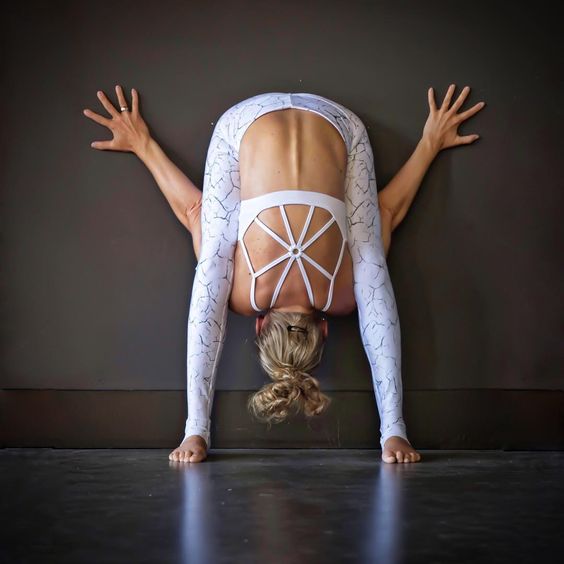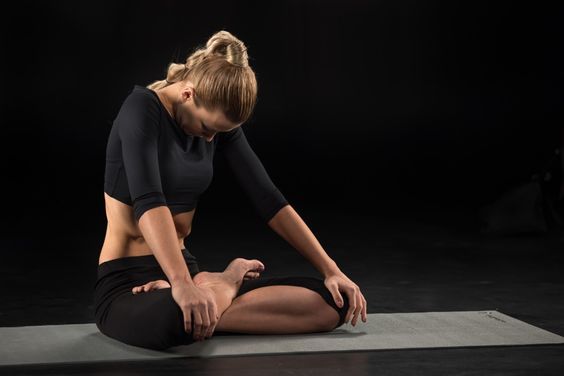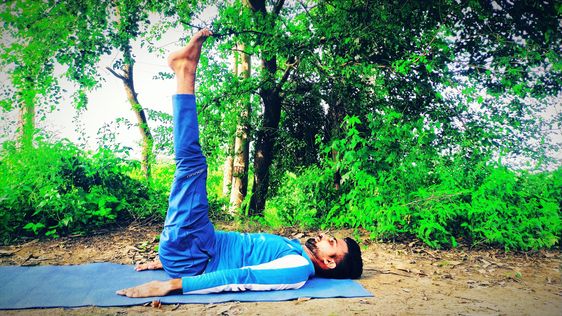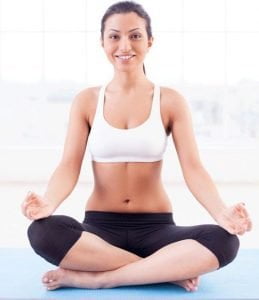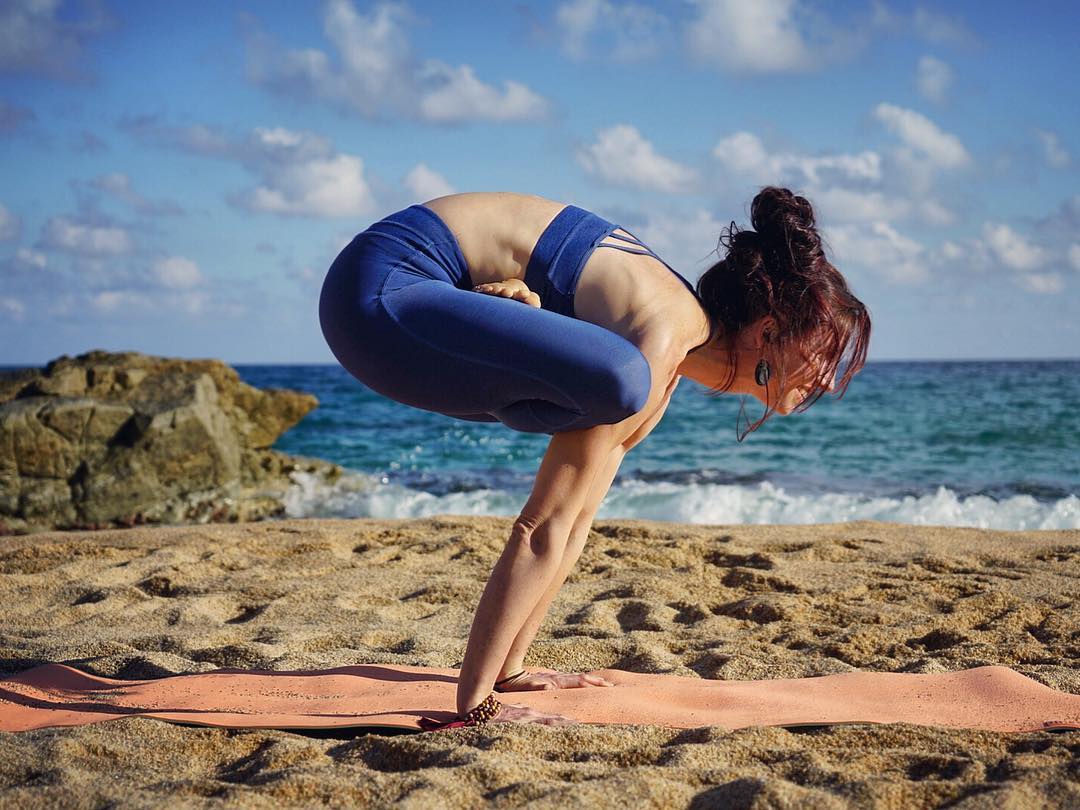
Sanskrit Name: Urdhva Kukkutasana/Padma Bakasana (ऊर्ध्व कुक्कुटासन/ पद्म बकासन)
English Name: Upward Rooster Pose
Type of Yoga: Ashtanga Yoga
Level of Yoga: Advanced / Intermediate
Duration: As per your capability or 1 to 5 minutes
Target Area: Spine, Arms
Strengthens: Joints, Elbows, Shoulders, Wrists
Urdhva Kukkutasana is named after roosters because while practicing this asana the practitioner’s pose appears like an upward rooster. The Urdhva Kukkutasana or Upward Rooster Pose was mentioned in the ancient yoga script of the Hatha Yoga Pradeepika as well as in the Gheranda Samhita.
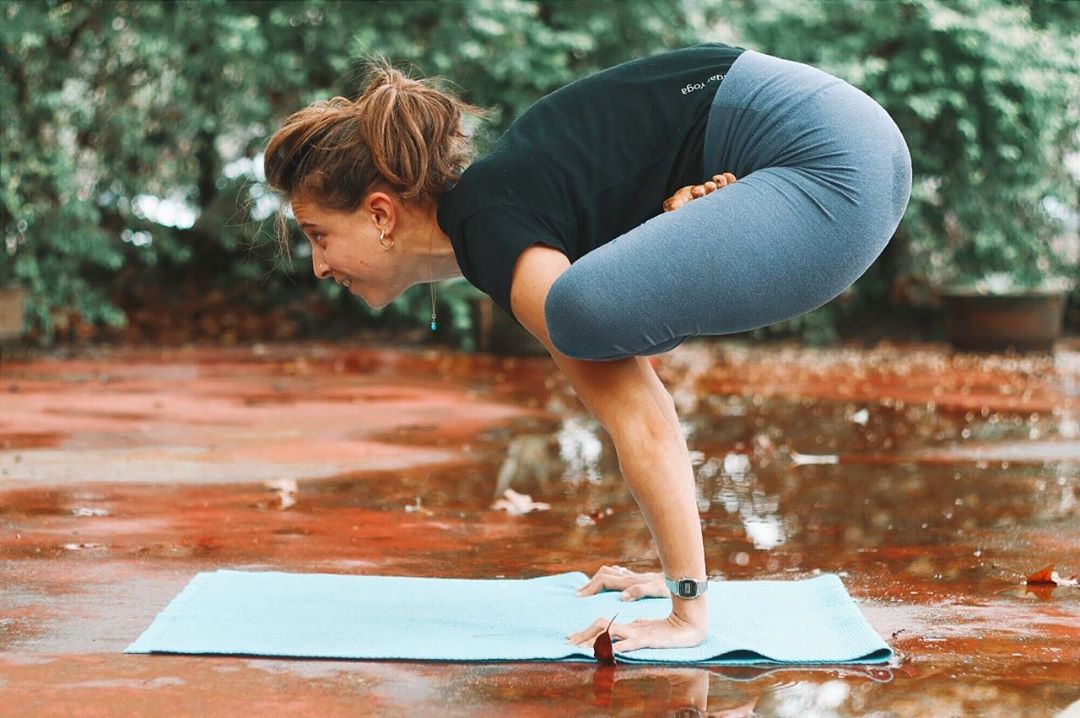
Table of Contents
What Does It Mean By Urdhva Kukkutasana?
The term Urdhva Kukkutasana has come from three Sanskrit language words,
Where the first word is “Urdhva (ऊर्ध्व)”, which means “Upward”
The second word is “Kukkut (कुक्कुट)”, which means “Rooster”
And the third word is “Asana (आसन)”, which means “Yoga Pose”
Urdhva Kukkutasana is also called Upward Rooster Pose in English. The Urdhva Kukkutasana has another name, which is Padma Bakasana. This posture is very good for balancing the body. It is a very important yoga for shoulder, arm, elbow, etc.
Preparatory Poses of Urdhva Kukkutasana:
- Padmasana (पद्मासन) or Lotus Pose
- Uddiyana Bandha (उड्डियान बंध) or Upward Lifting Lock or Abdominal Lock
- Surya Namaskar (सूर्य नमस्कार) or Sun Salutation
- Mula Bandha (मूल बन्ध) or Root Lock
- Ujjayi Pranayama (उज्जायी क्रिया) or Ocean Breath
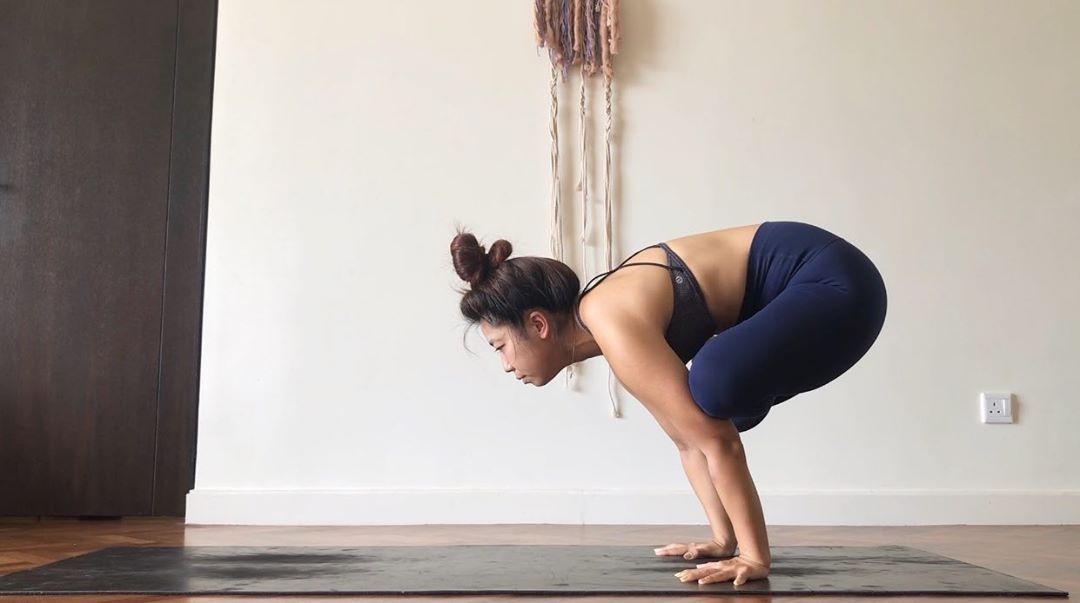
Method of practicing Urdhva Kukkutasana:
- To start this asana, at first, you must sit in the Padmasana or cross-legged.
- Now place your palms in the sides of your knees and practice Utthita Padmasana
- Once you master the Utthita Padmasana, then start your practice of Urdhva Kukkutasana
- To execute this asana place your palms in the side as Utthita Padmasana and the try to lift your torso from the ground
- Spread out the fingers, to ensure that they point forward
- Now push the palms as far as possible
- Then, inhaling try to raise the whole body
- Your body weight will entirely on your palms
- With adequate practice, you’ll surely be able to attain balance
- Inhaling, swing the knees back and thus place the knees on your upper arm
- You have to try to take your knees as near to your armpits as possible.
- Breathe normally and remain in this posture so far you have comfy
- Exhaling, release this posture and return to the floor.
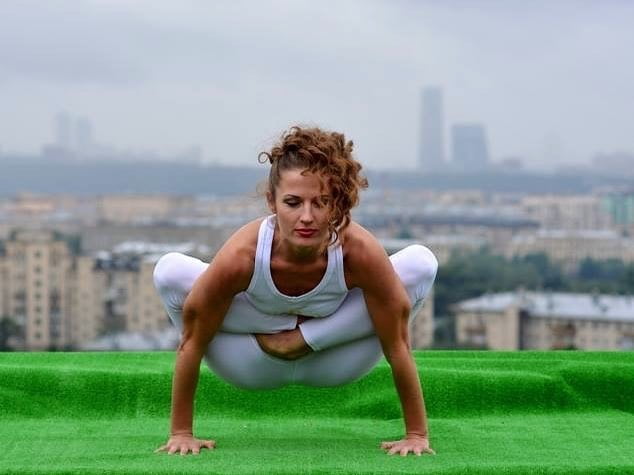
Beginner’s Tips:
In case you face difficulty while performing this asana then consult doctor or yoga expert immediately
If your palms hurt then you can place a folded blanket or yoga block under your palms
Follow-up Poses of Urdhva Kukkutasana:
- Gupta Padmasana (गुप्त पद्मासन) or Hidden Lotus Pose
- Urdhva Padmasana in Sarvangasana (ऊर्ध्व पद्मासन सर्वांगासन) or Side Upward Lotus Pose
- Sirsasana II (शीर्षासन II) or Headstand Pose II
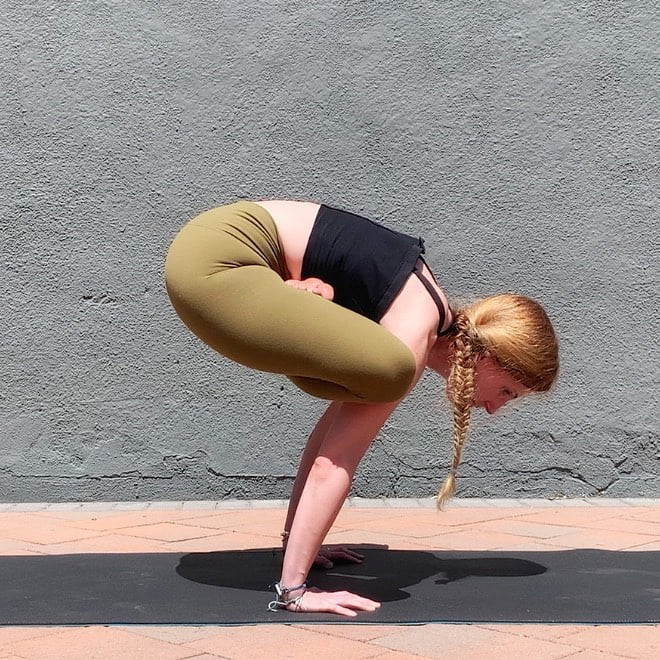
Precautions to Urdhva Kukkutasana:
Do not practice this asana during pregnancy
An individual with carpal tunnel syndrome are advised to avoid doing this asana
If you are High blood pressure (BP) patient then you should not practice this asana
An individual with any type of Heart diseases should not practice Urdhva Kukkutasana
If you are suffering from cerebral thrombosis then do not practice this asana at all
Individuals with ankle and knee injury must keep themselves away from practicing this asana
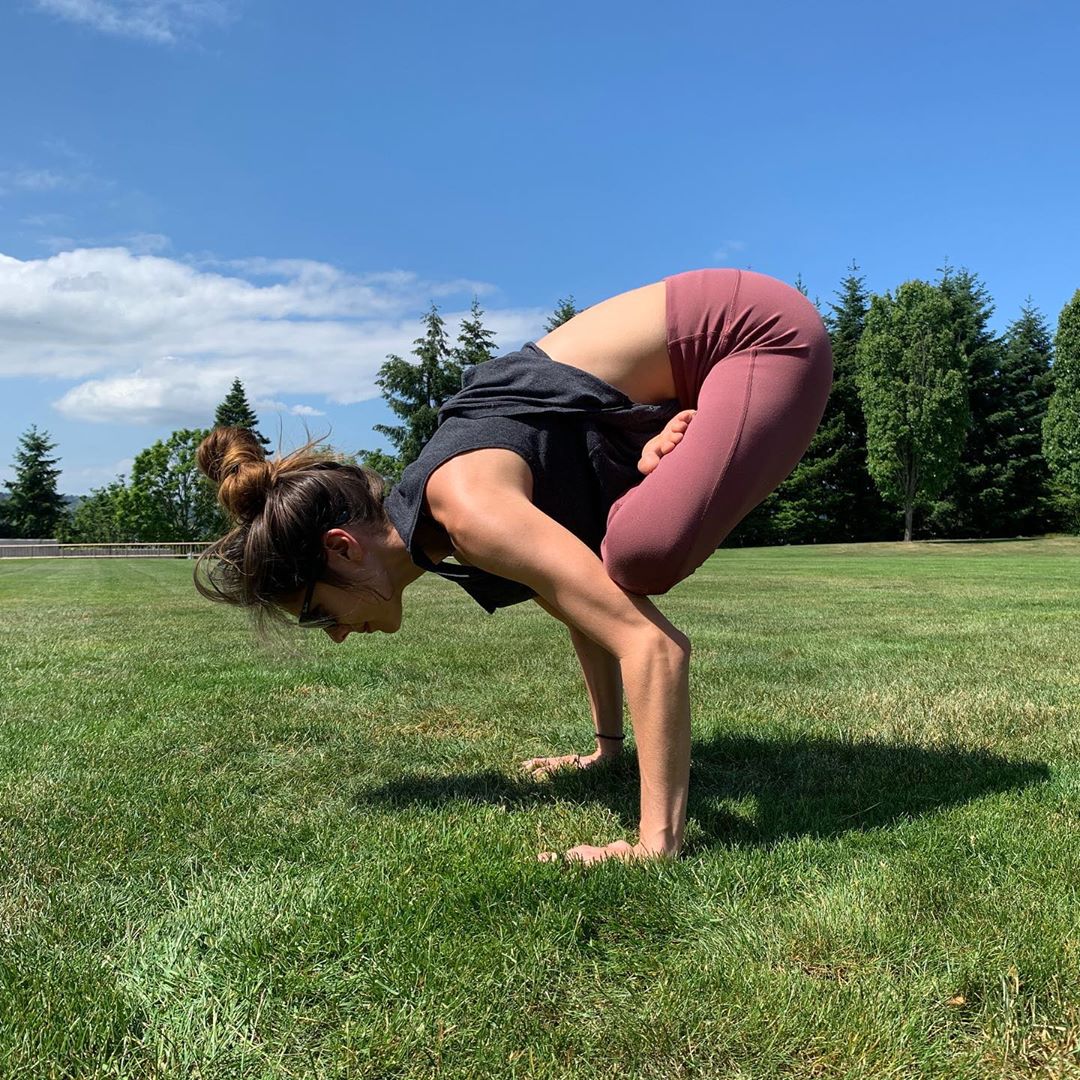
Benefits of Urdhva Kukkutasana:
- Urdhva Kukkutasana makes muscles in your arms as well as makes your shoulders strong
- Your legs get loosened up due to the regular practice of this asana
- It also assists to make your chest broader
- The Upward Rooster Pose builds stability and balance as well as helps you to focus with concentration
- Regular practice of Urdhva Kukkutasana activates as well as regulates your Muladhara Chakra
- This asana helps to stimulate your digestive system
- It helps to provide relief from menstrual discomfort as well as hip pain.

